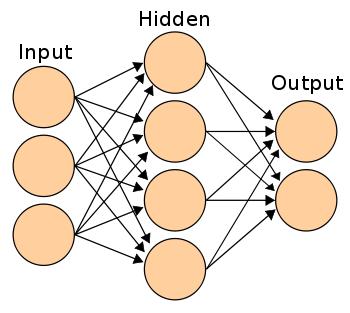For those yet to be indoctrinated with the knowledge of exactly what a Neural Network is, imagine the human brain, the role-model for modern computational science. In our brains are between 80 and 300 billion neurons and no, it's not 80 for the dumb kids and 300 for the smart ones, the truth is we just don't know exact numbers but we believe it's somewhere in that ball-park.

Neural Networks are science's attempt to map the behaviour of our brains and the neurons that it's made from, in order to create a powerful self-learning system. Each neuron is individually quite simple, it takes x inputs and has y outputs, with each signal individually weighted as the system learns to assign more or less priority to each one in a given situation. This maps well onto a computer, however, the massive parallelism of the human brain makes it difficult to achieve anywhere near the same level of complexity.
Google's aim is to use these man-made self-learning powerhouses to improve the quality of image searching and translation, building-up to something that can better process real-world data, the ideal product to support something like Project Glass. Most recently, the firm created a 10 billion-connection neural net to enhance face search and, after being fed homework of 10 million 200 x 200 pixel images from YouTube, the system was able to match faces with an accuracy rate of 15.8 per cent, a significant improvement over traditional alternatives.
15.8 per cent may seem awfully low for a system that works like our brains, however, 10 billion connections isn't the same are 10 billion neurons, as each neuron typically has around 1,000 connections. Placing this into perspective, the human brain is still 10,000 times more complex than Google's face recognition system, which is likely to be powered by a fairly substantial supercomputer.
When applied to translation, improvements in accuracy of between 20 and 25 per cent have been observed. Perhaps the future of error-free dictation or perhaps even live translation isn't as far away as we believed.













